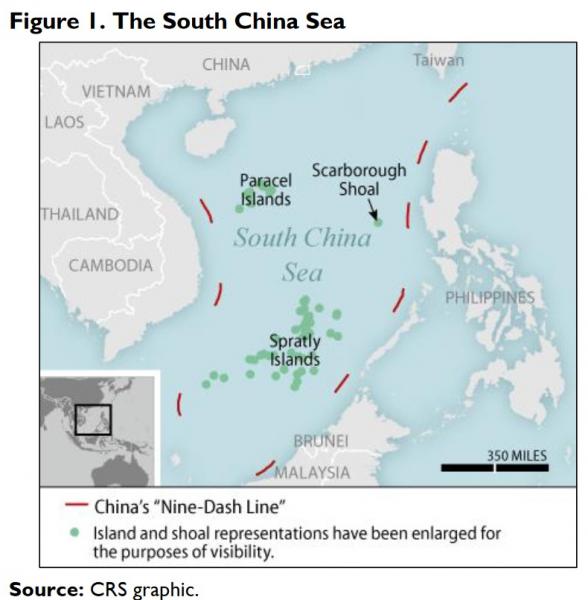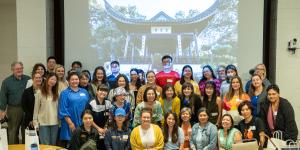On September 29, 2024, the USC U.S.-China Institute hosted a workshop at the Huntington’s Chinese garden, offering K-12 educators hands-on insights into using the garden as a teaching tool. With expert presentations, a guided tour, and new resources, the event explored how Chinese gardens' rich history and cultural significance can be integrated into classrooms. Interested in learning more? Click below for details on the workshop and upcoming programs for educators.
Congressional Research Service, South China Sea Disputes, Feb. 2, 2021
Multiple Asian governments assert sovereignty over rocks, reefs, and other geographic features in the heavily trafficked South China Sea (SCS), with the People’s Republic of China (PRC or China) arguably making the most assertive claims. The United States makes no territorial claim in the SCS and takes no position on sovereignty over any of the geographic features in the SCS, but has urged that disputes be settled without coercion and on the basis of international law. Separate from the sovereignty disputes, the United States and China disagree over what rights international law grants foreign militaries to fly, sail, and operate in a country’s territorial sea or Exclusive Economic Zone (EEZ).
Since 2013, the sovereignty disputes and the U.S.-China dispute over freedom of the seas for military ships and aircraft have converged in the controversy over military outposts China has built on disputed features in the SCS. U.S. officials saw the outposts as part of a possible Chinese effort to dominate the SCS, with the goal of making China a regional hegemon that can set the rules by which other regional actors must operate. A longstanding goal of U.S. strategy has been to prevent the emergence of such a regional hegemon. At his January 2021 confirmation hearing, Secretary of Defense Lloyd Austin asserted that China is “already a regional hegemon” and seeks to become “a dominant world power.” Observers have been alert to other actions China might take to dominate the SCS, including initiating reclamation on another SCS geographic feature, such as Scarborough Shoal, or declaring an Air Defense Identification Zone (ADIZ) over parts of the SCS.

///
The Congressional Research Service is a non-partisan office of the Library of Congress. The pdf of the full report is available at the link below.
Featured Articles
Happy Lunar New Year from the USC US-China Institute!
Events
Ying Zhu looks at new developments for Chinese and global streaming services.
David Zweig examines China's talent recruitment efforts, particularly towards those scientists and engineers who left China for further study. U.S. universities, labs and companies have long brought in talent from China. Are such people still welcome?






